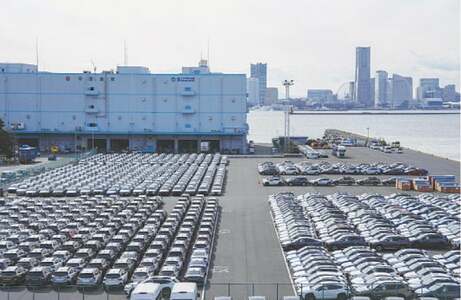Four powerful conglomerates — Fauji Foundation, Hussain Dawood Group, Yunus Brothers Group and Nishat Group — control 19.3 per cent of the total market capitalisation of the Pakistan Stock Exchange (PSX).
With the market capitalisation of Rs7.95 trillion on March 18, the four groups together have within their folds as many as 23, mostly blue-chip, listed companies with an aggregate market value of Rs1.55tr.
Fauji Foundation holds majority stakes in Fauji Fertiliser Company, Fauji Fertiliser Bin Qasim,
Fauji Cement, Askari Bank, Mari Petroleum and Fauji Foods. These companies have a combined value of Rs449 billion. The group recently expressed interest in taking over a smaller Silkbank Ltd.
Hussain Dawood Group owns six listed companies with the market capitalisation of Rs372bn. These are Engro Corporation, Engro Fertilisers, Dawood Hercules, Engro Polymer and Chemicals, Engro Powergen Qadirpur and Dawood Lawrencepur Ltd.
The third conglomerate, Yunus Brothers Group, is known for its huge share in the cement market with its flagship listed company, Lucky Cement. But the group also owns another giant, ICI Pakistan, and Gadoon Textile Mills. All three entities are collectively worth Rs347bn.
An unknown number of Pakistani-origin, super-rich people prefer to live quiet and private lives away from the media glare
The sprawling business empire of Nishat Group has controlling interests in eight listed entities of the aggregate value of Rs327bn based on market share prices. The group owns MCB Bank, DG Khan Cement, Nishat Mills and Adamjee Insurance Company, which the business magnate and founder of the group, Mian Muhammad Mansha, acquired years ago from the Adamjee Group.
Awais Ashraf, head of research at Foundation Securities, says that with six listed companies, Fauji Foundation tops the chart with a group share of 5.8pc in the PSX market capitalisation. “Fauji Foundation is the only group in the list which uses all of its income for the welfare of the people with over nine million beneficiaries across the country.” Mr Ashraf cautions that the above analysis does not include investments by these groups in their unlisted ventures.
Eight other major commercial and financial groups together hold controlling shares in 28 listed companies and banks with an aggregate value of Rs1.33tr. Bestway Group, founded by the British billionaire Sir Mohammed Anwar Pervez, owns one of the three largest commercial banks in Pakistan, United Bank Limited, along with and Bestway Cement.
The Pharaon family of Kingdom of Saudi Arabia is the principal owner of Pharaon Group of Companies which are mainly in oil, refinery and cement sectors. The group is the sponsor of mostly blue-chip companies like Pakistan Oilfields, National Refinery, Attock Refinery, Attock Petroleum and Attock Cement, which are cumulatively valued at Rs231bn.
Aga Khan Group has the biggest stakes in Jubilee Life Insurance, Jubilee General Insurance and its flagship entity, Habib Bank, valuing Rs213bn.
Lakson Group has in its fold Colgate-Palmolive (Pakistan), Century Paper and Board Mills, Merit Packaging and Century Insurance, with an aggregate paper value of Rs193bn.
Habib Group has listed financial assets worth Rs160bn with major interests in Indus Motor Company, Thal Ltd, Habib Insurance, Habib Sugar Mills, Shabbir Tiles and Ceramics and Habib Metropolitan Bank.
Mega Conglomerate holds major shareholdings in Hub Power Company and Pioneer Cement, which are together valued Rs136bn.
IGI Group counts among its listed entities Packages Ltd, IGI Holdings, Tri-Pack Films and IGI Life Insurance, with aggregate market capitalisation of Rs82bn.
A trip down memory lane: April 21, 1968 seems like an eternity when Dr Mahbubul Haq, then chief economist of the Planning Commission, identified Pakistan’s 22 richest families that, according to his calculations, controlled 66pc of the industries and owned an 87pc share in the country’s banking and insurance sectors.
Corruption, dishonesty and deceit were not so deep-rooted then. Swiss accounts might still be there, but no one had heard of offshore companies. So it was comparatively easy for Dr Haq to find out the richest financial groups at the time: Adamjees, Dawood, Saigol, Colony, Fancy, Valika, Jalil, Bawany, Crescent, Wazir Ali, Ghandhara, Ispahani, Habib, Khyber, Nishat, Beco, Gul Ahmed, Arag, Hafiz, Karim, Milwala and Dada.
Then called Karachi Stock Exchange was a sleepy place at the time with tiny market capitalisation as seths (owners) preferred to keep entire shareholding to themselves and within the family. Yet a couple of banks, insurance firms, shipping, sugar, textile, jute and engineering companies were listed and shares were traded in thousands through the open outcry system. Prime Minister Z.A. Bhutto nationalised almost all banks and insurance companies that had been so laboriously built by some of the 22 families. Dismantling the financial empires did nobody any good and a large number of those families faded into oblivion.
Some other big businesses collapsed as a result of disintegration and family feuds. A veteran who worked for one of those groups says that Fancy, Valika, Beco, Arag, Milwala and Khyber groups are alive today only in history books.
Politicians, feudal lords and business tycoons who subsequently amassed untold billions are impossible to be identified for the sum total. Even the known big financial groups are in no way verifiable. They are into everything, from fertilizers and pharmaceuticals to oil and gas exploration and real estate. Most detest listing their companies on the exchange. Even when they do, assets of only listed companies are exposed to the public eye. An unknown number of Pakistani-origin super-rich people prefer to live quiet and private lives out of the media glare in Pakistan and overseas.
Published in Dawn, The Business and Finance Weekly, March 22nd, 2021













































